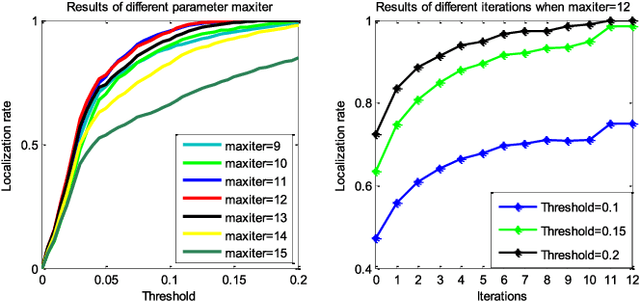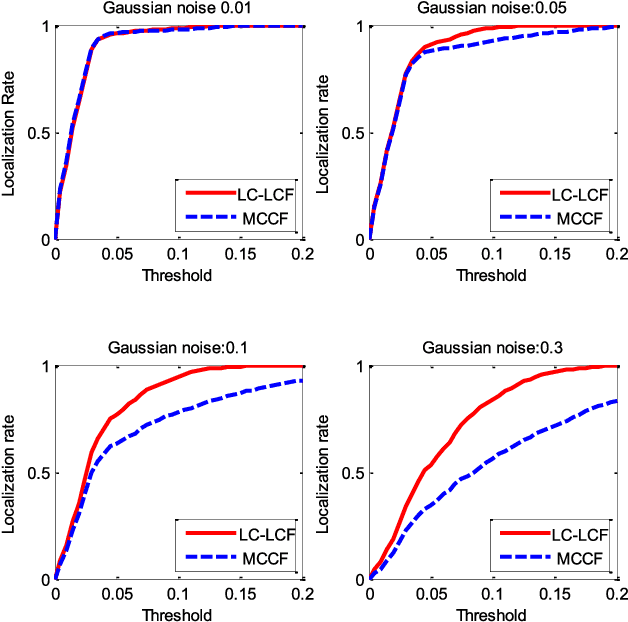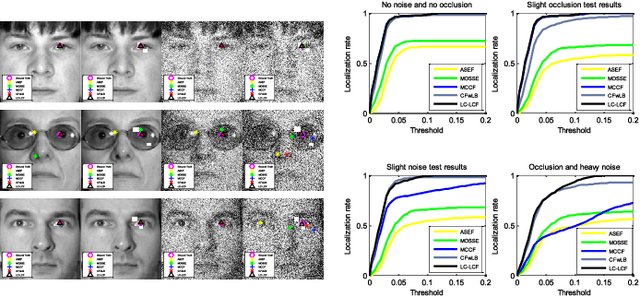Latent Constrained Correlation Filter
Paper and Code
Nov 11, 2017



Correlation filters are special classifiers designed for shift-invariant object recognition, which are robust to pattern distortions. The recent literature shows that combining a set of sub-filters trained based on a single or a small group of images obtains the best performance. The idea is equivalent to estimating variable distribution based on the data sampling (bagging), which can be interpreted as finding solutions (variable distribution approximation) directly from sampled data space. However, this methodology fails to account for the variations existed in the data. In this paper, we introduce an intermediate step -- solution sampling -- after the data sampling step to form a subspace, in which an optimal solution can be estimated. More specifically, we propose a new method, named latent constrained correlation filters (LCCF), by mapping the correlation filters to a given latent subspace, and develop a new learning framework in the latent subspace that embeds distribution-related constraints into the original problem. To solve the optimization problem, we introduce a subspace based alternating direction method of multipliers (SADMM), which is proven to converge at the saddle point. Our approach is successfully applied to three different tasks, including eye localization, car detection and object tracking. Extensive experiments demonstrate that LCCF outperforms the state-of-the-art methods. The source code will be publicly available. https://github.com/bczhangbczhang/.
 Add to Chrome
Add to Chrome Add to Firefox
Add to Firefox Add to Edge
Add to Edge